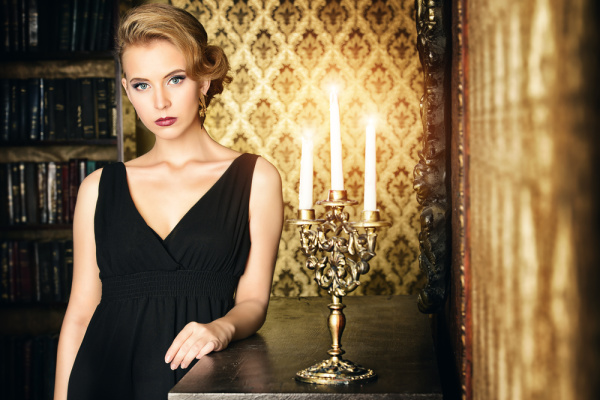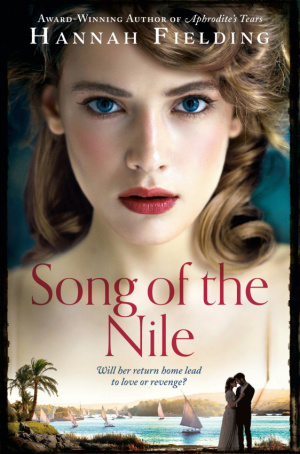An interview with Aida, heroine of Song of the Nile
An interview with Aida, heroine of Song of the Nile
An interview with Aida, heroine of Song of the Nile
-
Hannah
-
Hannah

My latest novel, Song of the Nile, is very close to my heart, because it is set in my homeland, Egypt, and explores the rich history and culture of the country. The story is set in the 1940s, after the end of the Second World War, a time of glamour and frivolity for the aristocracy, of polo tournaments and magnificent balls and picnics by the Nile – but also of the stirrings of revolution; soon, these days of making hay while the sun shines will be over.
My heroine, Aida, is part of the elite class in Egypt, but at the same time she does not quite fit in, having been isolated by a tragedy in her family. She is strong, she is intelligent, a modern woman in her time… and yet she can also be naïve, lost. Wrestling with her emotions.
Aida was a delight to write, because I identify with her in many ways, with her loyalty and passion and complexity. I hope you will enjoy getting to know her as I do, through this interview.
Good afternoon, Aida. Could you start by telling us a little about yourself?
Well, I’m Aida El Masri. I’m twenty-six, and I’ve just returned to Egypt after spending some time abroad.
So you are from Egypt originally?
Yes. I was born here. My father was Egyptian, a well-known archaeologist. He met my mother at a drinks party at the British Embassy in Cairo. She was British, you see, just passing through with her family en route from India to England. They fell in love at first sight and they eloped and married afterwards.
How romantic!
Yes, it was. But it wasn’t easy for them. Mixed marriages were met with great judgement then. Both my mother and father were snubbed in the Egyptian and British social circles. They became cut off, isolated. They moved here, to Luxor, to get away from it all and build a life together, and that’s exactly what they did: they refurbished this house, in the formal English style – my mother enjoyed that – and my father continued with his archaeological work, and in time they were accepted here. They made valuable new friends in Luxor… and enemies too, because as the old Arabic saying goes: Envy is the companion of great success.
But they were happy, for as long as they had together. Theirs was a true love story.

You mentioned that you’ve been away for a while, abroad?
Yes, I’ve been in England. I have family there, an uncle. He helped me to enrol as a trainee nurse at the Royal London Hospital. I had dreamed of being a nurse since I was a child, when I would read of Florence Nightingale, ‘The Lady with the Lamp’ in the Crimean War, and Edith Cavell, the nursing heroine of the Great War. The dream… well, let us just say that any romantic notions I had were soon dispelled.
The war?
Yes. For six years I nursed the wounded: soldiers maimed at Dunkirk, pilots burned in the Battle of Britain, civilians caught in the Blitz. It was harrowing. But important. I felt I was helping; all that suffering… I needed to help.
And now that the war is over, you have returned home.
Home. That is a word with a great deal of meaning. Luxor, Karawan House, yes they are home to me – where I grew up and where I have so many wonderful memories of my parents. But I cannot say that I feel quite at home here right now. I don’t know that I ever could until my father’s name is cleared.
Do you think that will be possible?
Yes! It has to happen. Ayoub El Masri was no criminal, no thief! He had the utmost respect for Egyptian antiquities and would never have been part of the trafficking that is rife here; he was a man of honour. He was framed, and the shock and the pain of this are what sent him to his grave. His name, his reputation, must be restored. I mean to do so, even if that means going up against those enemies who coveted what my father had.
Well, I wish you luck. ‘Truth will out,’ as they say.
Finally, you called your parents’ marriage ‘a true love story’. I wonder whether you see such a story in your future?
I would like to fall in love, naturally. I would be lying if I said it weren’t lonely, managing the estate here by myself.
But that is not to say I cannot do it alone! I do not need to marry. This ridiculous old-fashioned notion we have in Egypt that a woman needs a man, like we are fragile weaklings who cannot do anything for ourselves, cannot even think for ourselves… it’s maddening! Nobody thought like that in a London hospital during the war, let me tell you. The world here is so cut off from reality. It’s been frozen in the past. People live as our ancestors did thousands of years ago. Attitudes are outdated.
Take Phares of the Pharaony estate next door. My uncle here tells me that our fathers dreamed up some kind of union for us when we were but children. An arranged marriage! As if we are back in the time of the pharaohs!
My uncle insists that at age twenty-six I really must be married; ought to have had children by now. That marrying Phares is the only sensible option, bringing together our estates – because of course I, a woman, couldn’t possibly run the El Masri estate myself. It’s absolutely maddening.
No, I will not marry as some kind of business arrangement, or because others think I need a man. A marriage should be based on love, like my parents’ marriage.
I do not know whether I will be fortunate enough to find love as they did. But if I do… I will treasure it, for I know that life can be far too short, and every moment is precious.

Song of the Nile: available to buy now
Picture credit: Kiselev Andrey Valerevich/Shutterstock.